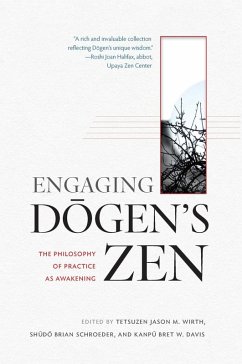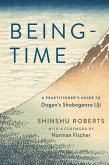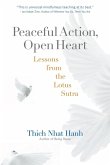How are the teachings of a thirteenth-century master relevant today? Twenty contemporary writers unpack Dogen's words and show how we can still find meaning in his teachings. Zen Master Dogen, the thirteenth-century founder of Japanese Soto Zen Buddhism, is widely regarded as one of the world's most remarkable spiritual thinkers. Dogen influence on both Japanese and Western Zen Buddhism cannot be overstated. His writings, emphasizing the nonduality of practice and enlightenment are vastly subtle, endlessly sophisticated-and renownedly challenging to read on one's own. This unique collection of essays opens up for the reader new pathways for connecting to and making use of Dogen's powerful teachings. Some of Soto Zen's leading scholars and practitioners offer a masterfully guided tour of Dogen's writings, organized around two key texts: Shushogi, which is a classical distillation of the whole of Dogen's teachings, and Fukanzazengi, Dogen universal instructions for Zen meditation. Along the way, the reader will gain an enriched understanding of the Zen practice and realization, of shikantaza or "just sitting," and of the essence of Mahayana Buddhism-and a much deeper appreciation of this peerless master. Includes essays from Kosho Itagaki, Taigen Dan Leighton, Tenshin Charles Fletcher, Shudo Brian Schroeder, Glen A. Mazis, David Loy, Drew Leder, Steven DeCaroli, Steve Bein, John Maraldo, Michael Schwartz, Tetsuzen Jason M. Wirth, Leah Kalmanson, Erin Jien McCarthy, Dainen David Putney, Steven Heine, Graham Parkes, Mark Unno, Shudo Brian Schroeder, and Kanpu Bret W. Davis.
Dieser Download kann aus rechtlichen Gründen nur mit Rechnungsadresse in A, B, BG, CY, CZ, D, DK, EW, E, FIN, F, GR, HR, H, I, LT, L, LR, M, NL, PL, P, R, S, SLO, SK ausgeliefert werden.









